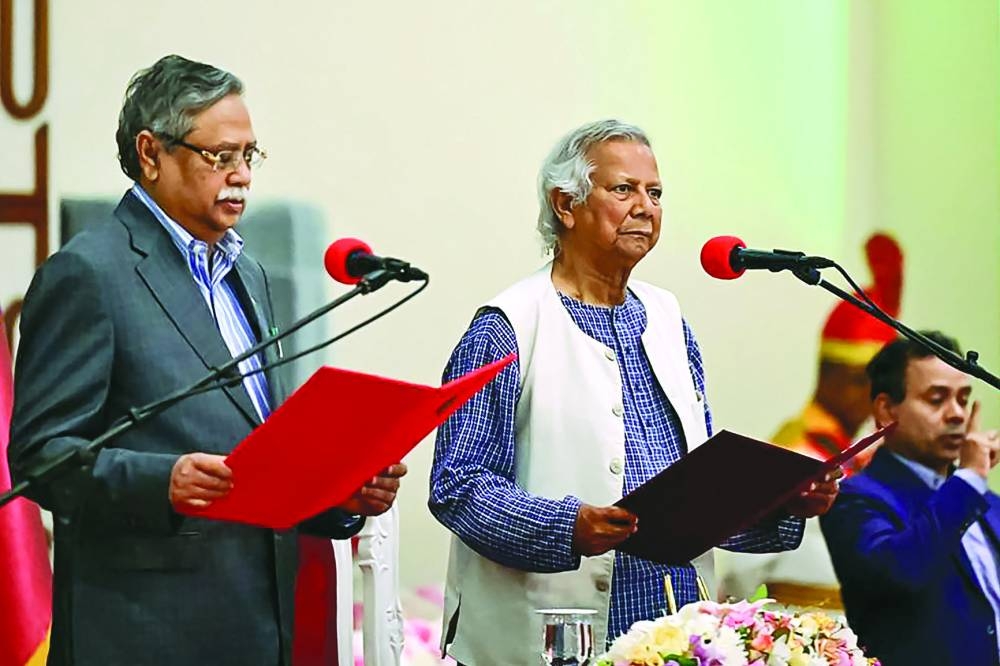Nobel Peace Prize winner Mohamed Yunus was sworn into office yesterday, vowing to lead Bangladesh back to democracy after a student-led uprising ended the 15-year rule of Sheikh Hasina.
Yunus, who earlier yesterday had hailed the overthrow of Hasina as Bangladesh’s “second independence”, swore to “uphold, support and protect the constitution”, in front of political and civil society leaders, generals and diplomats at the presidential palace.
“Today is a glorious day for us,” Yunus, 84, told reporters hours earlier when he returned to Dhaka from Europe.
“Bangladesh has created a new victory day. Bangladesh has got a second independence.”
Yunus called for the restoration of order after weeks of violence that left at least 455 people dead, calling on citizens to guard each other, including minorities who came under attack.
“Law and order is our first task... We cannot take a step forward unless we fix the law and order situation,” he said.
“My call to the people is if you have trust in me, then make sure there will be no attacks against anyone, anywhere in the country.”
“Every person is our brother... our task is to protect them,” Yunus said, adding that “the whole of Bangladesh is one big family”.
More than a dozen members of his cabinet, who are titled advisers, not ministers, also took the oath.
They included top leaders of the Students Against Discrimination group that led the weeks-long protests, Nahid Islam and Asif Mahmud.
Others included a former foreign secretary and a former attorney general, an environmental lawyer, and prominent rights activist Adilur Rahman Khan who was sentenced to two years in jail during Hasina’s rule.
Hasina, accused of widespread human rights abuses including jailing of political opponents, was forced to flee to neighbouring India on Monday as masses of protesters flooded Dhaka’s streets. The military then agreed to student demands that Yunus – who won the Nobel in 2006 for his pioneering microfinancing work – lead an interim government.
Yunus choked with emotion yesterday as he recalled the killing of student activist Abu Sayeed, shot dead in July by police from close range.

Nobel laureate Mohamed Yunus (centre) takes the oath of office as the chief adviser of Bangladesh’s new interim government during the oath-taking ceremony administered by President Mohamed Shahabuddin (left) in Dhaka yesterday.
